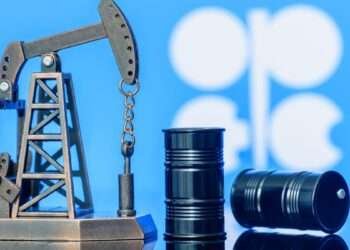The Nigerian National Petroleum Company Limited (NNPCL) has strongly denied reports that it imported over 200 million litres of Premium Motor Spirit (PMS), commonly known as petrol, in February 2025.
The state-owned oil company issued a firm rebuttal following claims that it had played a direct role in large-scale fuel importation despite ongoing refinery rehabilitation efforts.
In a statement released by NNPCL’s Chief Corporate Communications Officer, Olufemi Soneye, the corporation dismissed the reports as “completely false, baseless, and a reckless misrepresentation of facts.”
Soneye stressed that NNPCL had not imported any PMS in 2025, though it retains the legal right to do so if necessary.
Soneye clarified that NNPCL neither regulates the import activities of private oil marketers nor issues import licenses.
This, he explained, meant that any petrol importation that may have occurred within the specified period was conducted independently by private sector players and not under the directive of NNPCL.
While denying the allegations, NNPCL emphasized its role in ensuring national energy security. Soneye stated that the corporation would take necessary measures, including importation, if the local market experienced shortages that threatened fuel supply stability.
“While NNPC Limited has not imported PMS in 2025, let it be clear that there is no legal restriction preventing us from doing so if necessary.
“As Nigeria’s foremost energy company, we have a duty to ensure energy security. Should any supply shortages arise, NNPC Limited retains the full right and responsibility to step in and import to stabilize the market.”
Olufemi Soneye, NNPCL’s Chief Corporate Communications Officer
NNPCL’s response comes at a time of heightened public scrutiny over fuel importation policies, especially with expectations that the refurbishment of state-owned refineries should reduce Nigeria’s dependence on imported fuel.
Many Nigerians have expressed frustration over persistent fuel imports despite government assurances that the rehabilitation of refineries would lead to self-sufficiency in fuel production.
Threats of Legal Action Over Misinformation

Soneye also warned that NNPCL would not hesitate to take legal action against individuals or organizations disseminating false information about its operations.
He underscored the importance of factual reporting in shaping public discourse and protecting the integrity of national institutions.
“Misinformation of this magnitude does a grave disservice to the public, distorts market realities, and misleads key stakeholders.
“NNPC Limited will not tolerate the spread of false and malicious reports aimed at undermining its reputation.
Olufemi Soneye, NNPCL’s Chief Corporate Communications Officer
Furthermore, he urged media houses to uphold journalistic integrity by verifying facts before publishing reports that could mislead the public and fuel unnecessary controversies.
“We will take all necessary legal measures to hold accountable those responsible for fabricating and disseminating falsehoods about our operations.”
Olufemi Soneye, NNPCL’s Chief Corporate Communications Officer
The controversy originated from a report by financial analysis platform Nairametrics, which alleged that NNPCL had imported approximately 159,000 metric tons of PMS—equivalent to over 200 million litres—between February 1, 2025, and February 12, 2025.
The report sparked outrage among Nigerians on social media, with many questionings why large volumes of fuel were still being imported despite government investments in refinery upgrades.
Nigeria’s federal government has long promised that the rehabilitation of key refineries—including the Port Harcourt, Warri, and Kaduna refineries—would significantly reduce the nation’s reliance on imported petrol.
However, delays in these projects have kept the country dependent on fuel imports, which has led to periodic supply crises and fluctuating pump prices.
The NNPCL has categorically denied claims that it imported over 200 million litres of petrol in February 2025, stating that the report was false and misleading.
While affirming its legal right to import fuel, when necessary, the corporation insists it has not done so this year. The incident has reignited debates on Nigeria’s continued reliance on fuel imports despite ongoing refinery rehabilitation efforts.
As the nation continues working toward energy self-sufficiency, NNPCL’s role remains crucial in balancing market stability with national energy security.
Moving forward, the government, private sector, and regulators must work collaboratively to address structural issues in the petroleum industry and ensure sustainable energy solutions for Nigerians.
READ ALSO: Ken Ofori-Atta No longer A Fugitive – OSP





















